
The UK has left the European Union, bringing to an end almost half a century as a member of the Brussels club.
Prime Minister Boris Johnson acknowledged there could be “bumps in the road” as the country enters a new era, but he insisted that Brexit can “unleash the full potential” of the UK.
Mr Johnson accepted there would be mixed feelings in a nation that remains deeply divided after years of bitter Brexit battles.
“For many people this is an astonishing moment of hope, a moment they thought would never come,” he said.
“And there are many of course who feel a sense of anxiety and loss.”
The UK joined the then European Economic Community in 1973 but the 2016 referendum signalled the beginning of the process which resulted in Britain’s membership of the bloc coming to an end at 11pm on Friday.
Mr Johnson said his job was now to “bring this country together”.
Tonight we are leaving the European Union. pic.twitter.com/zZBsrf4BLe
— Boris Johnson (@BorisJohnson) January 31, 2020
“We want this to be the beginning of a new era of friendly cooperation between the EU and an energetic Britain, a Britain that is simultaneously a great European power and truly global in our range and ambitions,” he said.
“And whatever the bumps in the road ahead I know that we will succeed.”
On a day filled with symbolic moments:
– The Union flag was removed from the European Union institutions in Brussels
– The Cabinet met in Sunderland, the first city to declare in favour of Brexit when the 2016 results were announced
– A light show illuminated 10 Downing Street and Union flags lined The Mall
– The White Cliffs of Dover formed the backdrop for pro-EU messages
– A 50p coin to mark the occasion entered circulation.
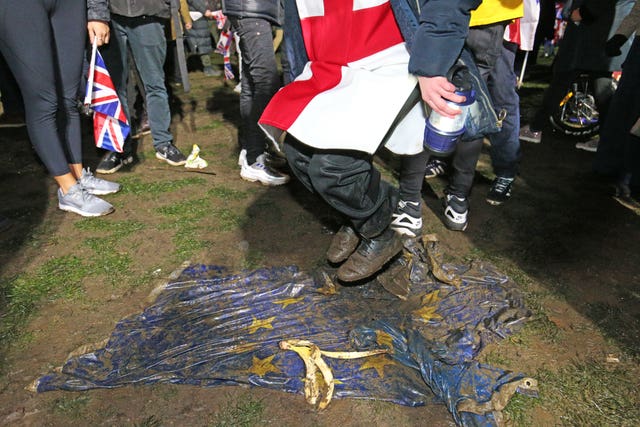
There will only be minimal changes as the deal negotiated by the UK and EU keeps Britain aligned with EU rules for the rest of the year.
But attention has already turned to the next set of talks aimed at securing the future relationship which will apply from January 1, 2021.
And Mr Johnson has been clear he also wants to strike deals with countries around the world – notably Donald Trump’s USA.
Brussels is pessimistic about the 11-month timetable for reaching a deal and made clear that Britain will have to accept worse terms and conditions for trade than if it were still a member of the EU.
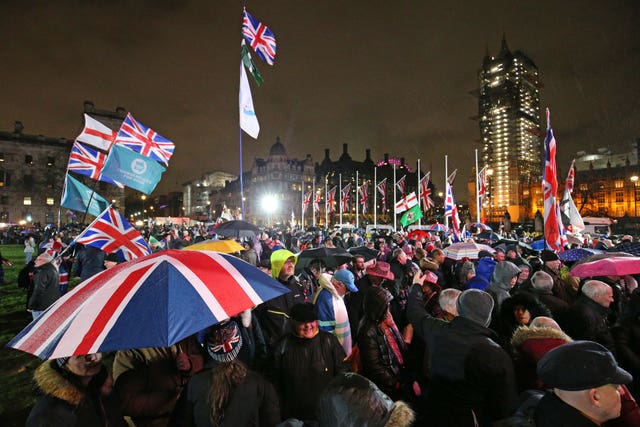
European Commission president Ursula von der Leyen said: “We want to have the best possible relationship with the United Kingdom, but it will never be as good as membership.”
Senior Cabinet minister Michael Gove acknowledged the trade-offs that would have to be made in any deal.
“We want trade to be as frictionless as possible but the EU is clear, you can only have fully frictionless trade if you accept all of their rules, if you accept all their laws, you are subordinate to their judges, you are subordinate to their political structures,” he told the BBC.
Mr Gove said there “will be some regulations that will differ in Britain” so “that may mean that when it comes to trading with Europe there are some bureaucratic processes there that aren’t there now”.
The Daily Telegraph reported that Mr Johnson is prepared to impose full customs and border checks on all European goods entering the UK in an effort to create leverage in the negotiations with Brussels.
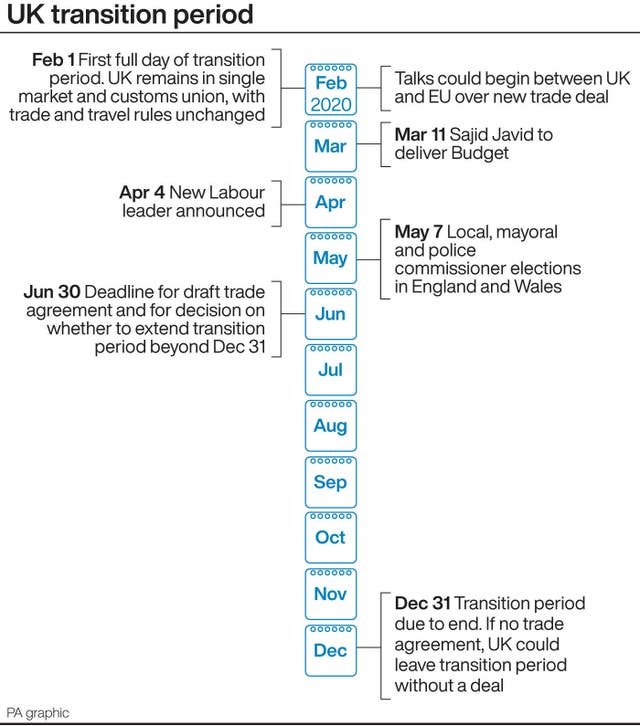
As the Cabinet gathered in Sunderland, car giant Nissan – which has a major plant in the city – called for clarity from the Government about its plans and urged both the UK and EU to secure “an orderly balanced Brexit that will continue to encourage mutually beneficial trade”.
The Prime Minister hosted a reception in Number 10 for senior ministers, officials and supporters of Vote Leave who quaffed English sparkling wine while a countdown clock beamed onto the building ticked down the minutes until 11pm.
Nigel Farage told cheering crowds at the Brexit celebration rally in Parliament Square: “We did it. We transformed the landscape of our country.
“There are some that say we shouldn’t celebrate tonight, but we are going to celebrate tonight.”
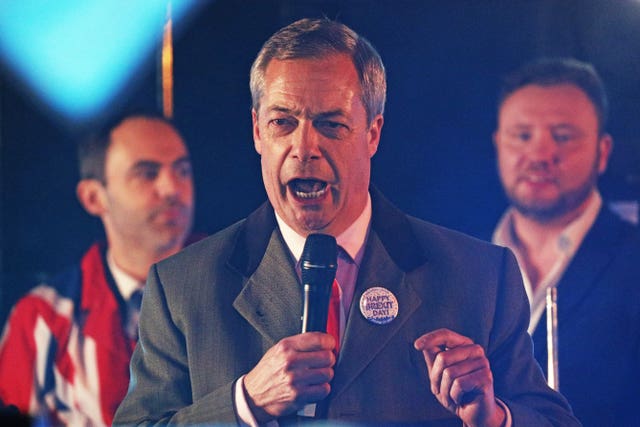
He added: “The people have beaten the establishment. The real winner tonight is democracy. And I am someone who believes we should be pro-Europe, but not the European Union.”
In Scotland, which voted to stay in the EU in the 2016 referendum, rallies and candlelit vigils took place as activists sought to send a message to the EU to keep open a place for Scotland.
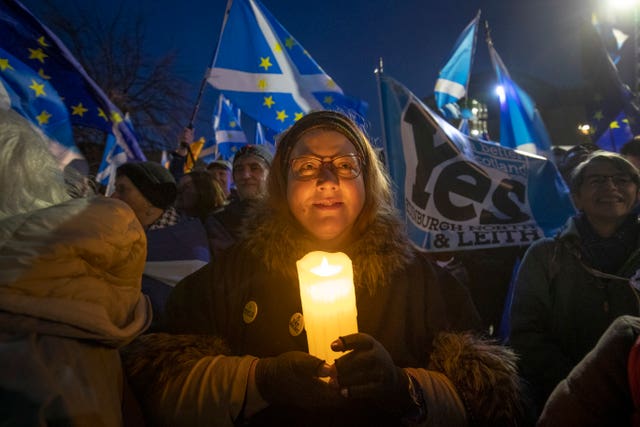
In Northern Ireland, the campaign group Border Communities Against Brexit staged a series of protests in Armagh, near to the border with the Republic of Ireland.
In Cardiff, First Minister Mark Drakeford said Wales would “remain a proudly European nation”.
Meanwhile leaders across Europe gave their reactions to the first country leaving the EU.
German Chancellor Angela Merkel said Brexit was “a deep break for us all” and warned the “negotiations will certainly not be easy”.
French President Emmanuel Macron said Brexit was an “alarm signal” for the EU and hit out at the “lies, exaggerations, simplifications” that led to the Leave vote.


Comments: Our rules
We want our comments to be a lively and valuable part of our community - a place where readers can debate and engage with the most important local issues. The ability to comment on our stories is a privilege, not a right, however, and that privilege may be withdrawn if it is abused or misused.
Please report any comments that break our rules.
Read the rules hereLast Updated:
Report this comment Cancel